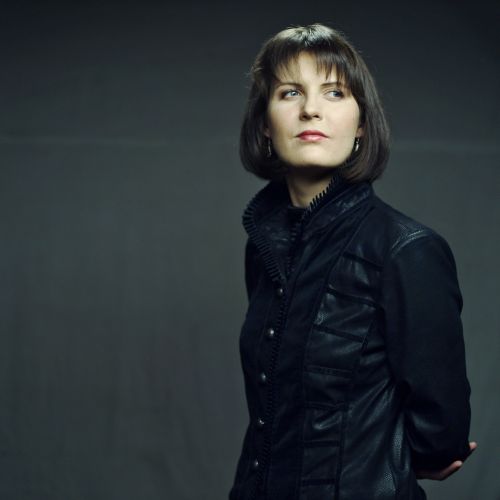Raminta Šerkšnytė

Raminta Šerkšnytė (born 1972) is one of Lithuania’s most skilled composers. Nature is a dominant theme in her post-Romantic creative work, while her compositions resemble grand, hypnotic, psychologised landscape paintings, for which she fuses elements of traditional and avant-garde musical language. Her compositions are dashing, expressive, temperamental and poignant. The music critic Helmut Mauró wrote in Süddeutsche Zeitung: ‘Even when she utilises forms of Minimalism, late Romanticism or jazz, foreign words form a unique language, separate feelings turn into dramatic action, and melancholy becomes Baltic mysticism’ (Gidon Kremer und Komponistin Raminta Serksnyte in München, Süddeutsche Zeitung, 23 01 2009).
Among her most important works are De Profundis (1998), Iceberg (Aisbergas, 2001), Vortex (Sūkurys, 2004), Mountains in the Mist (Kalnai migloje, 2005), Almond Blossom (Migdolų žydėjimas, 2006), the oratorio Songs of Sunset and Dawn (Saulėlydžio ir aušros giesmės, 2007), Midsummer Song (Vasarvidžio giesmė, 2009), Fires (Ugnys, 2010), and the opera Mary’s Five Miracles (Penki Merės stebuklai, 2017). In 2011, Arvo Pärt nominated Midsummer Song, which Šerkšnytė was commissioned to compose for Gidon Kremer and his Kremerata Baltica, for the Prince Pierre Foundation Competition (Monaco), after being strongly impressed by it. The work won the Coup de Coeur des Jeunes Musiciens (Young Musicians’ Favourite) prize. Šerkšnytė’s compositions have been played on stages such as Vienna’s Musikverein, the Berliner Philharmoniker, and the Lincoln Center for the Performing Arts in New York. Her music has been presented at many festivals, including the ISCM World Music Days (Zagreb, Hong Kong, Vilnius, Gent), Gaudeamus Music Week (Amsterdam), Klangspuren (Tiroli), and the Gaida Festival in Vilnius.
Raminta Šerkšnytė’s music is available at: www.mic.lt/en/database/classical/composers/serksnyte